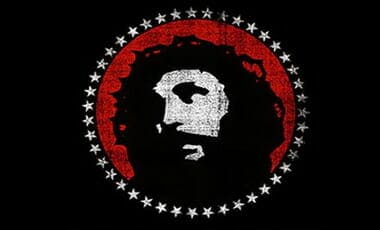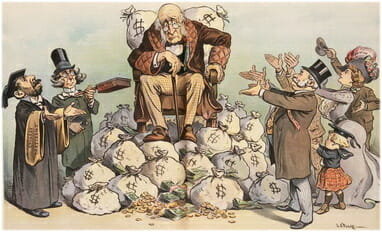Some Carter Flashbacks: Originally posted November 18, 2013
— Some Updated Material at the end —
This is a posted pic from FaceBook, and here is my response to this all too often used mantra:
My (or others smarter than myself) two cents.
Programs initiated as part of the War on Poverty account for roughly 70 percent of all public assistance programs today. Estimates of the total cost of the War on Poverty over fifty years range between $15 trillion and $19.8 trillion in today’s dollars. This substantial investment appears to have yielded minimal benefits for poverty reduction. On the day Johnson introduced the war on poverty, the poverty rate in the US stood at roughly 14 percent. It is now approximately 16 percent and has never fallen below 11 percent. (Cornell University)
Also, this from a very old post of mine back when my blog was on a free site instead of my current .com
If you can remember back to the 2000 election here in the U. S. and the blue state, red state scenario of which voted for Gore and which voted for Bush, I’m sure you do, even if another country. Once in a while stats are done to see which part of the country (which states in fact) give more to charity per-capita than other states. Do you know which of the top twenty states gives the most to charity? You got it, Bush country! Every single one of the red states in that top-twenty are the middle-income fly-over states. Guess how many red-states got the lower twenty of giving? Two. Eighteen States that were in the lowest giving ratio to charity were Gore states. This is even more interesting with a few recent poles. Just under 66-percent republicans go to church one-to-two times a week. Just fewer than 66-percent democrats do not even go to church once a week. DRAT those nasty/greedy religious/conservatives!
So the question becomes this for the ineffable — damn near anti-Semitic — person pictured above… what does he consider Christian? 90% of one’s income to go to the government for redistribution? 80%? 70%? When does one stop being a Christian? Kinda a sliding scale (income giving) for those who define what being a Christian is… I mean, what is “is”?
And a civics 101 lesson, our government was set up to grind to a halt… the whole “checks and balances thingy.” I would hate for the parties to get along.
An after thought.
Keep in mind as well that every dollar given to, say, the Salvation Army, about 82-cents gets to the person in need. The exact opposite it true for government. About 30-cents of every dollar spent makes it to the needy individual.
So, would reducing the charitable giving write-off from 39.6% to what Obama would like to see (28%):
a) hurt the poor,
or b) help the poor?
Using Carter’s formula, then, would you be more of a Christian if you wanted to keep the status-quo, or, less of a Christian if you wanted to drop it to twenty-eight percent?
SOME UPDATES
Was Jesus a Socialist? | 5 Minute Video
Did Jesus support socialism? Do the teachings of Jesus Christ condemn the accumulation of wealth while pushing for the equal distribution of resources? Lawrence Reed, president of the Foundation for Economic Education, explains the misconceptions surrounding one of history’s greatest figures. (Read his eBook titled, “Rendering Unto Caesar: Was Jesus A Socialist?” — for free)
FEE notes this in an article
- Jesus did not even suggest a distribution. Instead, he warned against greed while declining to play the busybody.
Some Myths About the Rich and Taxes | Medved
(FLASAHBACK) A caller challenged Michael Medved on the “system” backing the rich… to which Michael responded with some counter-points. The conversation turned to taxes, and I learned a bit about the flat-tax and the “graduated” aspect of even it. Great call and great learning curve of a response.
“The Party of the Rich” (The GOP) | Prager
(FLAHBACK) This is an old audio*. Dennis Prager deals squarely with a mantra you often hear from the left. Enjoy.
- *My Vimeo account was terminated, this is a recovered audio from them. To wit, what is nice is that Vimeo — while noting I did not meet their clear marks of content — did send a list of videos with links to download them. With over 1,200 videos though… it will be a task (many are already on YouTube… so I just need to weed through them). But I still think that was VERY NICE of Vimeo. I would still recommend them for church’s who are looking for places to upload sermons and other original content.
Do the Rich Pay Their Fair Share? | 5 Minute Video
Do the rich pay their fair share of taxes? It’s not a simple question. First of all, what do you mean by rich? And how much is fair? What are the rich, whoever they are, paying now? Is there any tax rate that would be unfair? UCLA Professor of Economics, Lee Ohanian, has some fascinating and unexpected answers.















